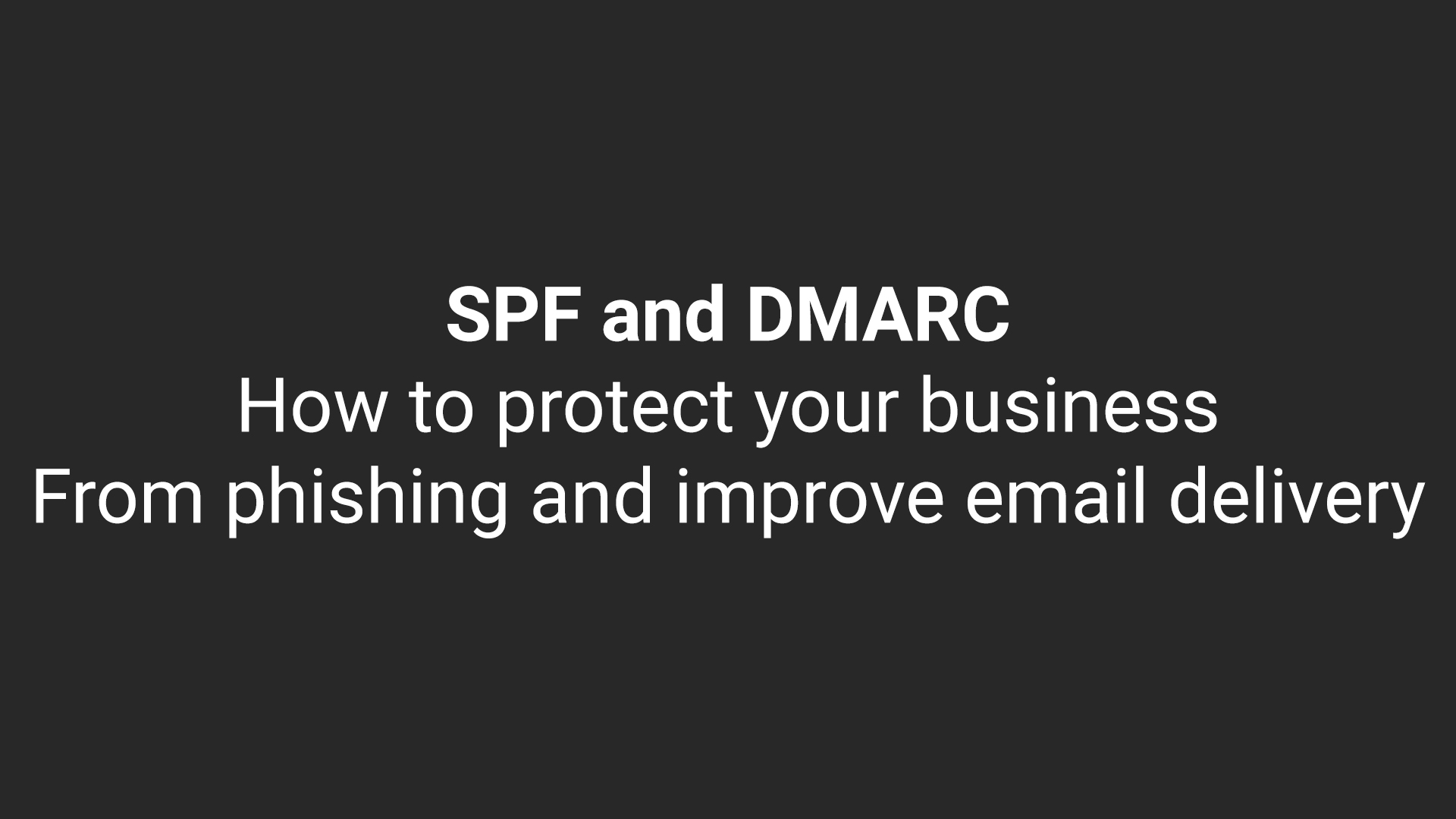SPF and DMARC: How to protect your business from phishing and improve email delivery
- October 17, 2024, 07:22:44

E-mail remains the main means of communication for businesses, but with the increasing number of phishing attacks and spam, the need to protect corporate mail is becoming more urgent. Solutions such as SPF (Sender Policy Framework) and DMARC (Domain-based Message Authentication, Reporting & Compliance) play a key role in protecting your email system and increasing its trust. In this article, we will look at how SPF and DMARC work, why it is important to use them and what benefits they give to your business.
What is SPF?
SPF (Sender Policy Framework) is an email authentication system that allows you to determine which servers can send emails on behalf of your domain. SPF prevents fake emails from being sent from your domain by matching the senders' IP addresses with the authorized servers listed in your domain's DNS records.
How does SPF work?
Setting up an SPF record: The domain owner adds a special SPF record to the DNS of his domain. This entry specifies the IP addresses of the servers that are allowed to send e-mail on behalf of the domain.
Checking the mail server: When the mail server receives an email, it checks the sender's SPF record to make sure that it was sent from an authorized server.
Making a decision: If the sender's IP address matches the SPF record data, the email is validated. Otherwise, it may be marked as spam or rejected.
What is DMARC?
DMARC (Domain-based Message Authentication, Reporting & Compliance) is a protocol that helps domain owners protect their mail from forgery and phishing. DMARC allows domain owners to specify how mail servers should handle messages that do not pass SPF or DKIM checks.
How does DMARC work?
Setting up a policy: The domain owner creates a DMARC record in DNS, where he specifies the policy for processing letters that have not been authenticated. The policy can be of three types: monitoring (none), rejection (reject) or quarantine (quarantine).
Verification and reporting: When the mail server receives an email, it checks it for compliance with SPF and DKIM. If the email does not pass verification, the server applies the policy specified in the DMARC record.
Delivery Reports: DMARC also provides reports that show which emails have passed or failed verification, helping domain owners track potential threats.
Why should businesses use SPF and DMARC?
Using SPF and DMARC helps protect your business from various threats related to email. Here are a few reasons why using them is important:
Phishing Protection: SPF and DMARC prevent fraudulent emails from being sent on behalf of your domain, which helps protect your customers and partners from phishing attacks.
Improving domain reputation: Mail services trust domains that use SPF and DMARC more, which increases the likelihood that your emails will not end up in spam.
Improved email deliverability: Configuring these protocols reduces the likelihood that your legitimate emails will be marked as spam, which is especially important for marketing and transactional emails.
Transparency and Accountability: DMARC provides reports that help you track all attempts to send emails on behalf of your domain and respond quickly to threats.
Business Benefits
Brand Reputation Protection: SPF and DMARC protect your reputation by preventing fake emails from being sent on behalf of your domain.
Reducing the risks of cyber attacks: The sender verification system prevents hackers from trying to use your domain to send phishing emails.
Improving Customer Trust: A secure email system creates more trust among your customers and partners.
Effectiveness of email campaigns: By increasing the level of deliverability and reducing the number of emails that end up in spam, your marketing campaigns will be more successful.
Conclusion
Using SPF and DMARC are important steps to protect your business from phishing attacks and increase trust in your domain. These protocols help to reduce the risk of cyber threats, improve the deliverability of emails and protect your reputation.
Services from MivoCloud
MivoCloud offers comprehensive email hosting and security solutions:
SPF and DMARC configuration: We will help you configure these protocols for your domain, ensuring maximum protection of your emails.
Powerful servers for mail systems: High-performance servers with support for all modern security protocols.
24/7 support: Our team is always ready to help you with setting up and monitoring your email systems.
Choose MivoCloud for reliable hosting and email security!

